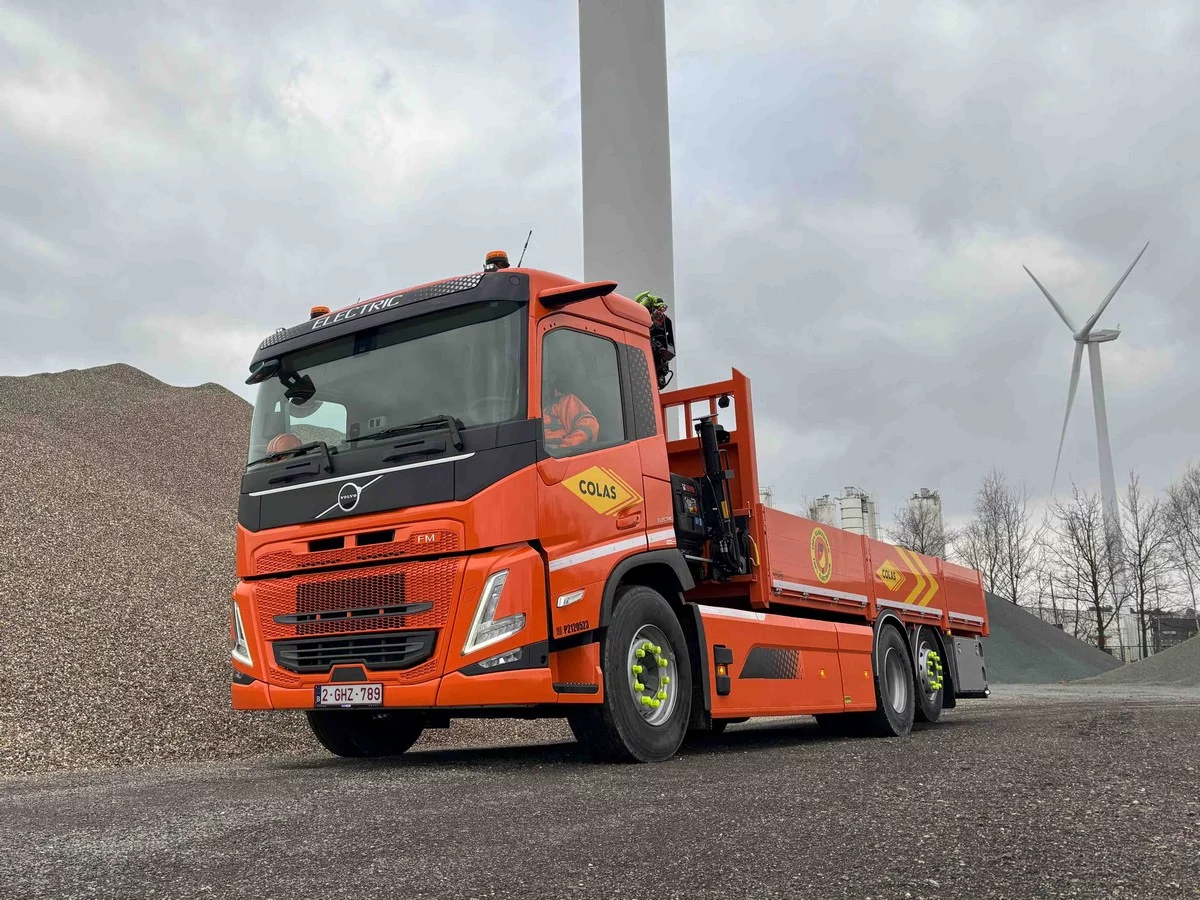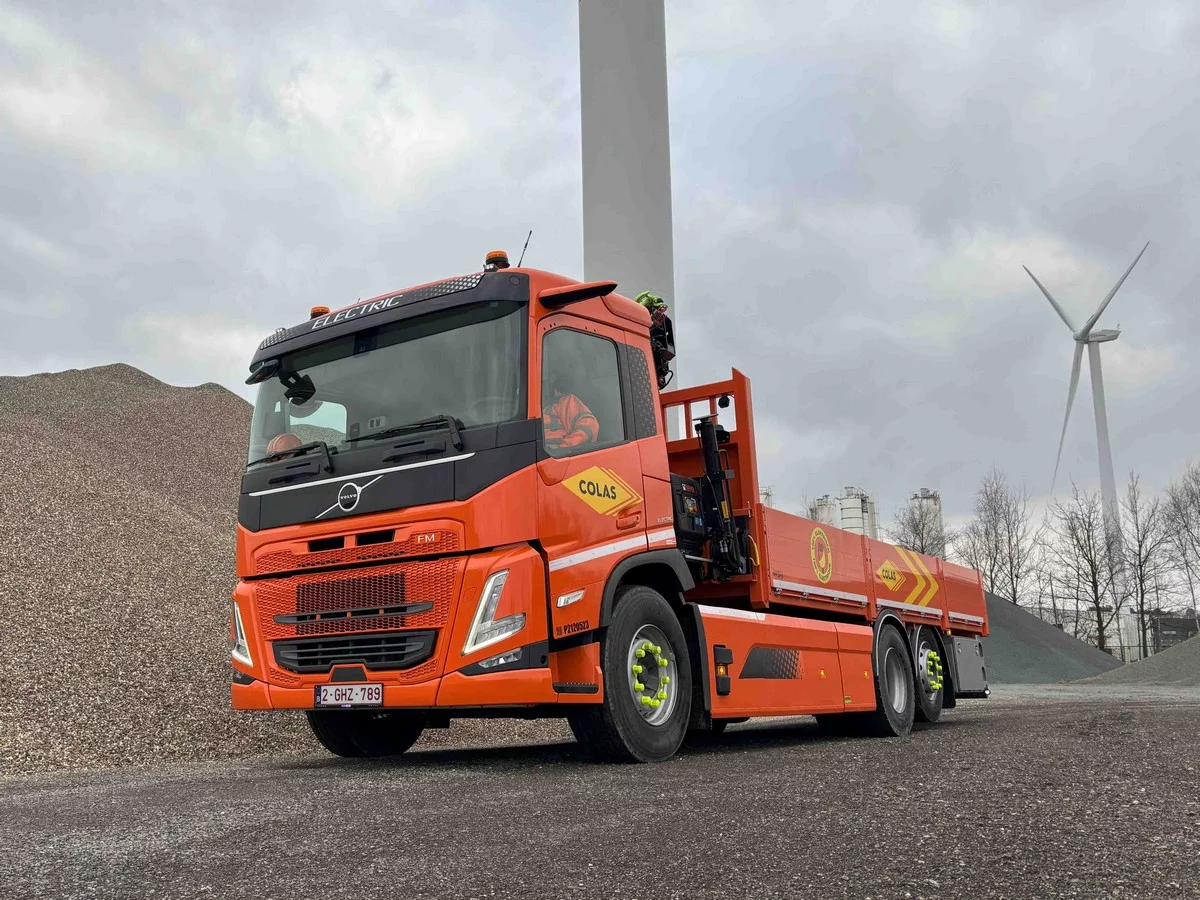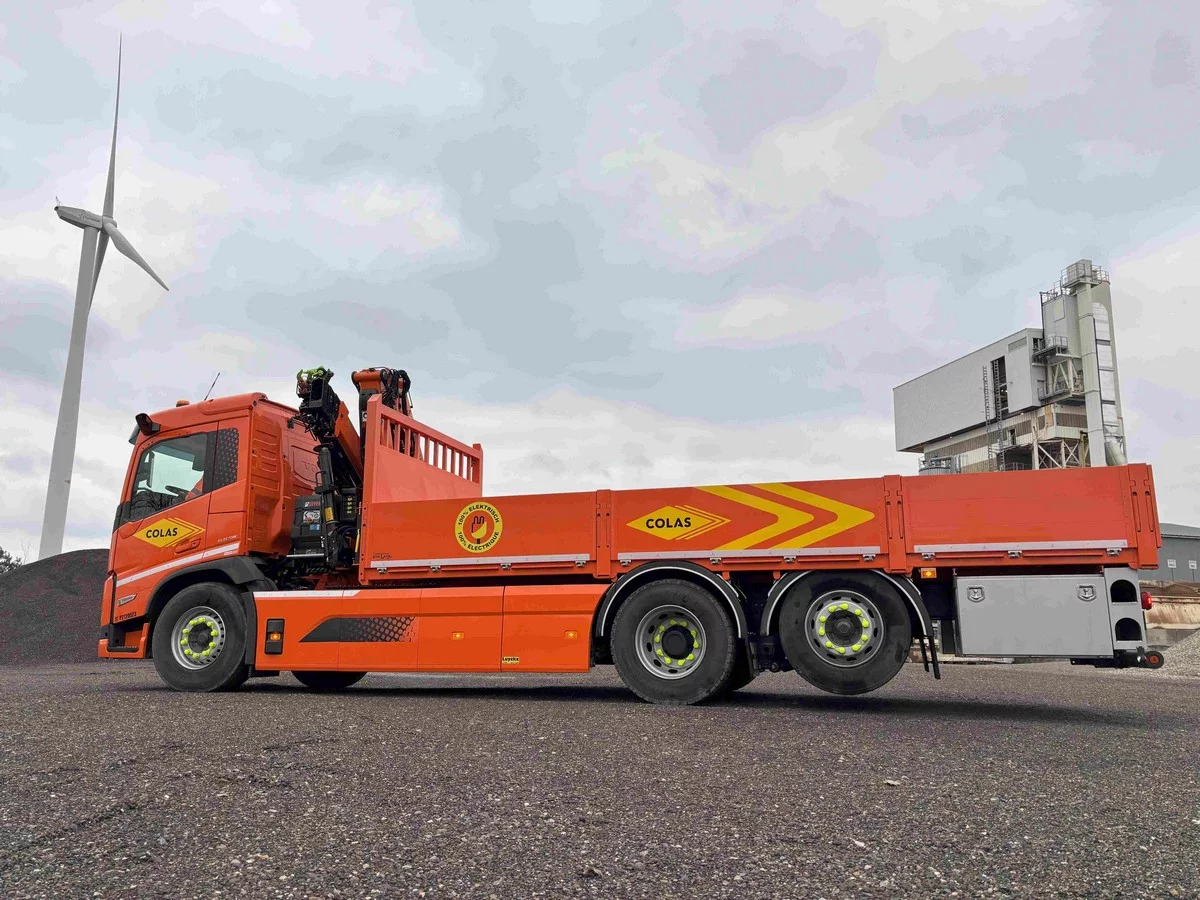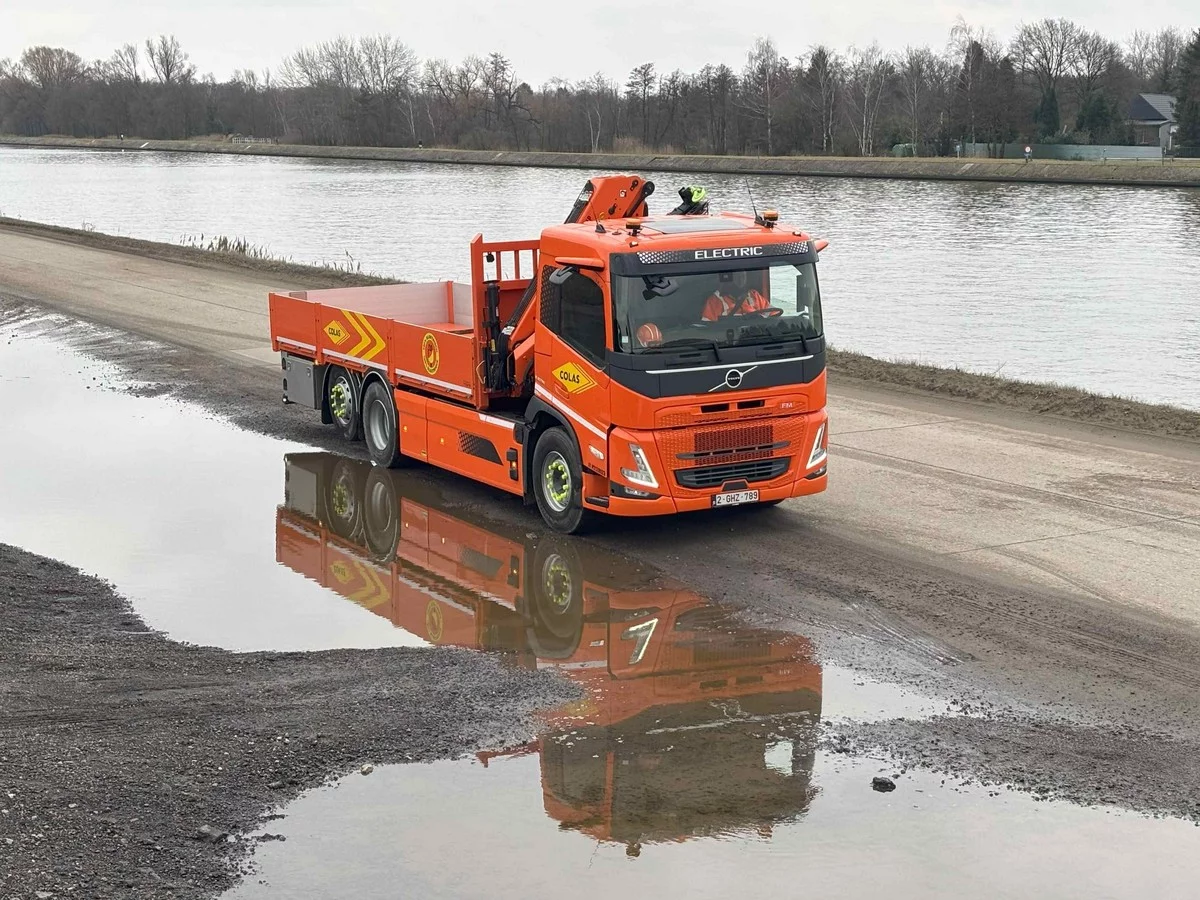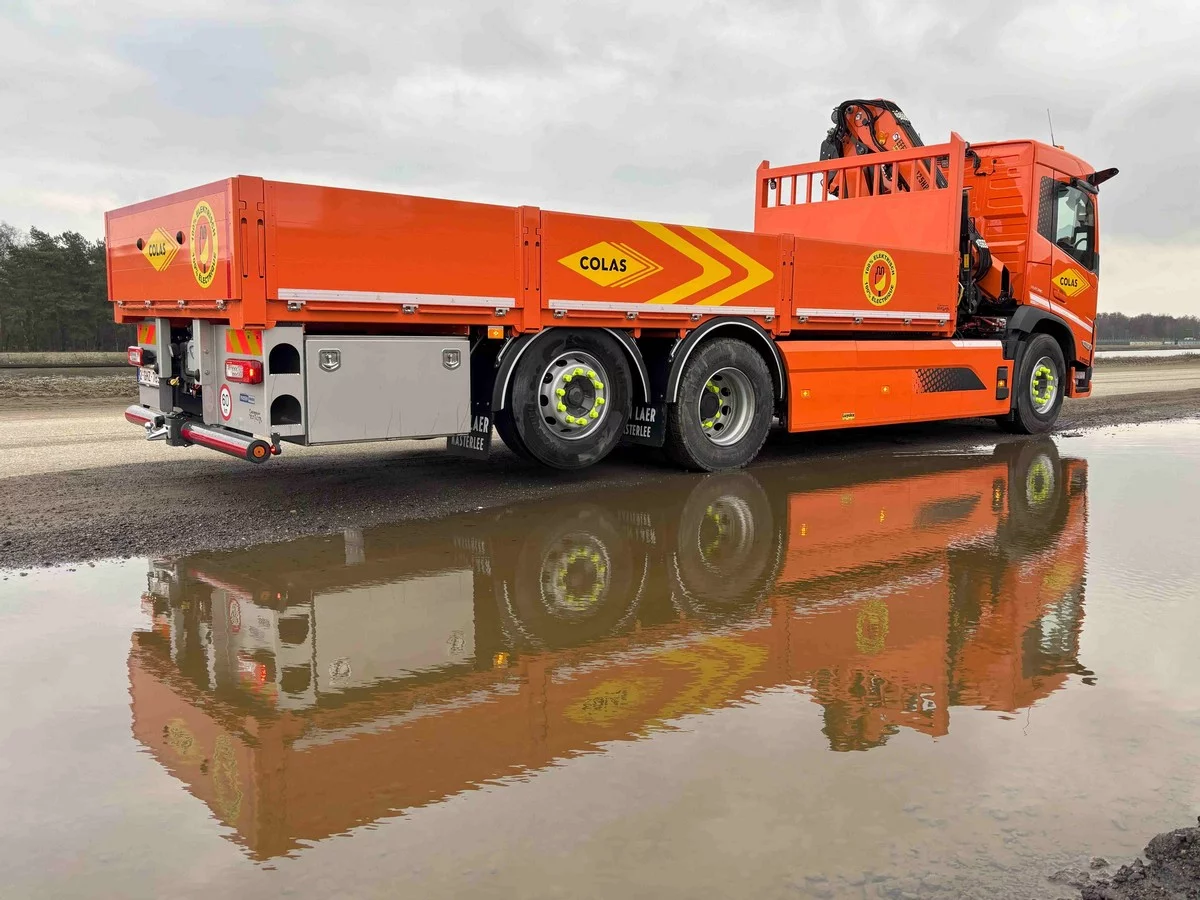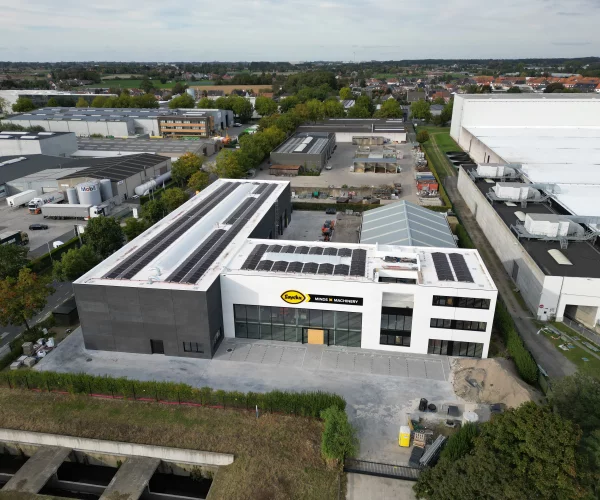Colas Belgium puts first Volvo FM Electric into service
Wednesday, February 19, 2025Colas Belgium recently took delivery of its first Volvo FM 6x2 Electric truck. The vehicle will be used in the North of the country to install road signs required for road works. This investment is part of Groupe Colas' commitment to significantly reduce its carbon footprint by 2030.
Colas Belgium, part of the French Colas Group, specialises in the construction and maintenance of road, rail, port, airport, industrial and logistics infrastructure. These activities are supported by a versatile fleet of 95 trucks. ‘Just over half of this fleet is allocated to material transport activities, while the rest is used for so-called vocational activities,’ he said. Since 2020, Volvo Trucks has been the exclusive truck supplier to Colas Belgium. This means that this manufacturer already accounts for almost half of our truck fleet today. Although our group has already invested in several electric trucks in Europe, this Volvo FM Electric is the first to be included in our Belgian fleet. And it certainly won't be the last, given our strong ambition to reduce our ecological footprint,’ says Christian Jacques Equipment Director at Colas Belgium.
Indeed, in 2021, Groupe Colas launched the ACT programme, one of whose objectives is to reduce direct and indirect greenhouse gas emissions (Scope 1, 2 and 3) by 46.5% by 2030. The purchase of this FM Electric is therefore clearly part of this programme.
Transport and installation of signalling
‘Colas Transport Belgium's FM Electric, delivered by our dealer Paesen Trucks in Heusden Zolder, is a 6x2 rigid truck equipped with a crane behind the cab and an open cargo box. The superstructure was realised by Luyckx in Brecht. The truck is equipped with six battery packs - totalling 540 kWh - which give it a range of 250 to 300 km, depending on the intensity of crane use,’ adds Yves Verheyden, Key Account Manager at Volvo Trucks Belgium.
‘This vehicle is based in Heusden Zolder and is used to supply and install temporary signage for our construction sites, such as signs, bollards, concrete support blocks, etc. It is deployed in most of Flanders and returns to its base every day, which we have equipped with fast chargers. These are mainly powered by electricity generated on site by our wind turbines and photovoltaic panels,’ adds Christian Jacques.
Adapted to the construction sector
‘For a year, we analysed the movements of the previous signalling vehicle. We discovered that it rarely covered distances of more than 300 km per day. So the FM Electric's range is perfectly adapted to this activity,’ he continues.
Yves Verheyden added: ‘The construction sector lends itself particularly well to the use of electric trucks because these vehicles generally cover relatively short distances. Moreover, they often work from their sites, which makes recharging the batteries easier. Volvo Trucks has therefore developed a wide range of electric models for this sector, ranging from simple 4x2 rigids to complex 8x4 vehicles.’
TCO equal to that of diesel trucks
The gross vehicle weight (MMA) of this FM Electric is 28 tonnes. Because electric trucks are allowed to weigh 2 tonnes more than the legal limit, the payload is almost equal to that of a diesel vehicle, despite the weight of the batteries.
‘Within the framework of our policy to reduce CO₂ emissions, the electrification of our truck fleet - and ultimately our yard machinery - seems the right way forward. Thanks to the subsidy from the Flemish Agency for Innovation and Entrepreneurship (VLAIO) and the fact that this truck mainly uses locally generated electricity, we achieve an operating cost (TCO) for this FM Electric comparable to that of a diesel truck. The HVO option is also being considered, but the high cost of this renewable fuel remains a barrier to its use,’ Christian Jacques concludes.
This press release is an original publication of Volvo Trucks Belgium.

